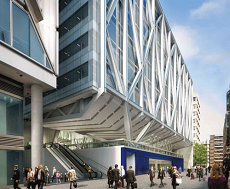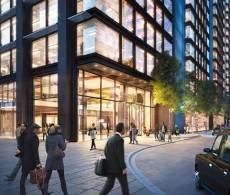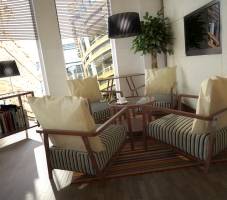February 18, 2015
£16.5m deal for office development at Moorgate Crossrail station confirmed
 Land Securities has confirmed it has bought the leasehold to the 1.9 acre site located at the western entrance to the Liverpool Street Crossrail station for £16.5 million. Plans for the site, at 21 Moorfields, EC2, which currently comprises vacated 1970s offices and a Transport for London (TfL) worksite, include two new buildings totalling approximately 500,000 sq ft of predominantly office space, with some retail at ground level and a public realm. The two proposed buildings will provide direct access to the underground and the new Moorgate Crossrail station below – due for completion in 2018. Land Securities entered into a conditional agreement to acquire the site in December 2012 and has since negotiated to own the site on two separate 250 year leases, with TfL having the option of participating in the development.
Land Securities has confirmed it has bought the leasehold to the 1.9 acre site located at the western entrance to the Liverpool Street Crossrail station for £16.5 million. Plans for the site, at 21 Moorfields, EC2, which currently comprises vacated 1970s offices and a Transport for London (TfL) worksite, include two new buildings totalling approximately 500,000 sq ft of predominantly office space, with some retail at ground level and a public realm. The two proposed buildings will provide direct access to the underground and the new Moorgate Crossrail station below – due for completion in 2018. Land Securities entered into a conditional agreement to acquire the site in December 2012 and has since negotiated to own the site on two separate 250 year leases, with TfL having the option of participating in the development.
























February 17, 2015
Why would you want a Google office when you can create your own?
by Maciej Markowski • Comment, Facilities management, Flexible working, News, Workplace design
(more…)